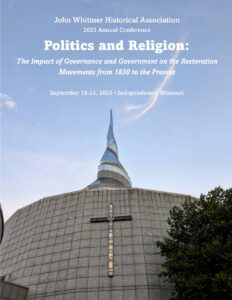Welcome to Fredericksburg
Abstract:
As welcoming presenter at the JWHA conference in Fredericksburg, Texas at the Hangar Hotel, I will inform the audience of Fredericksburg’s unique character and history as a German-American town in the Texas Hill Country. I will briefly highlight the attractions of Fredericksburg and then spend the majority of the presentation on the founding and later history of this community, as well as the German culture that has lived on here for over 175 years. The history includes reasons the German emigrants left their homeland, the role of the society of German noblemen in sponsoring the emigration, the emigrants’ struggles and suffering on their journey and after their arrival here, and their resilience and courage in making a new life for themselves and their families. I will emphasize the founding of the Mormon colony of Zodiac and its importance to this community. Despite being a small town, Fredericksburg has become a major tourist destination, and I will briefly tell how that came to be.
Biographical Sketch: Eileen Whited has been an employee of the Gillespie County Historical Society for nine years and was previously a secondary school history teacher and librarian. Born in Fredericksburg and raised in a bilingual (German and English) home, she attended two rural country schools. After graduating from Fredericksburg High School, she earned a B.A. with honors from Texas Lutheran College in Seguin, Texas, and then earned her M.A. in American History from the University of Houston. All of her ancestry traces directly back to the German immigrants who founded this community over 175 years ago. She and her husband live on a cattle ranch in a 170-year-old limestone house where they raised their two daughters. For several years Eileen conducted an historical and architectural walking tour in Fredericksburg, and she remains devoted to acquainting others with the fascinating history and culture of her hometown.
Keynote 101: Richard P. Howard Lecture (7:00 p.m., Thursday, September 21)
Title: The Council of Fifty and Latter-day Saint Interest in Texas by Matthew J. Grow
Abstract: The minutes of the Council of Fifty, first published by the Joseph Smith Papers in 2016, reveal much about the interest of Joseph Smith and the Latter-day Saints in Texas. A proposal to settle Texas served as the catalyst for the formation of the Council in March 1844 and the possibility of a settlement in the independent nation was given significant attention by the council. Interest in such a settlement evaporated once Texas was annexed as a part of the United States. Even so, Lyman Wight appealed to ambiguous statements by Joseph Smith to the Council of Fifty as a mandate to lead his own settlement to Texas.
Biographical Sketch: Matthew J. Grow is Managing Director of the Church History Department of The Church of Jesus Christ of Latter-day Saints. He leads a team of history professionals who collect documents and artifacts, preserve them, and promote understanding of the Church’s past through a publishing program, a research library, a museum, and many historic sites. Grow has also served as a general editor of the Joseph Smith Papers and Saints: The Story of the Church of Jesus Christ in the Latter Days. He has published widely on Latter-day Saint history and American religious history. Grow received his Ph.D. in American history from the University of Notre Dame. He and his wife Alyssa live with their four children in Sandy, Utah.


